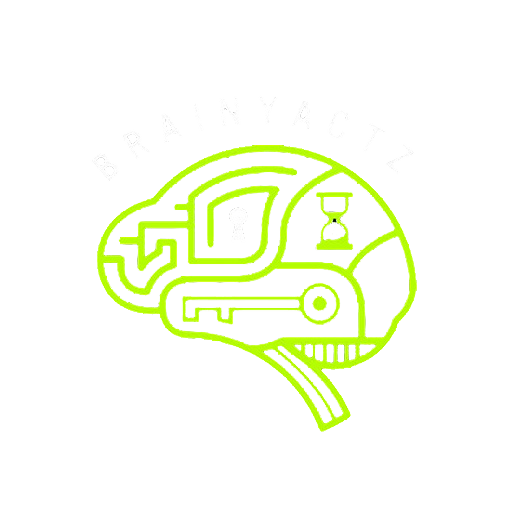Ever wondered what kind of thinker you become when the clock is ticking in an escape room? This article highlights various escape room solver types—from the knowledge-hungry researcher to the keen actor who notices every detail. It maps out strategies for each type, ensuring you can harness your deductive reasoning and natural strengths. Whether you’re the one holding the flashlight, guiding your team through the shadows, or piecing together puzzles, mastering your unique approach can be a game-changer. Get ready to understand your role in the teamwork dynamic and enhance your escape room experiences!
Key Takeaways
- Escape rooms offer a unique blend of storytelling, problem-solving, and team-building.
- Identifying your solver type can enhance your approach to escape room challenges.
- Communication and leveraging team strengths are key to escape room success.
- Continuous improvement and embracing new challenges elevate the escape room experience.
- Solver types like Puzzle Masters and Code Crackers bring distinct skills to team dynamics.
Introduction to Escape Room Challenges

Imagine stepping into a scene straight out of a Star Wars adventure, where the glow of a blacklight reveals hidden messages on a wall, and deciphering a scribbled note on a piece of paper is key to your next move. This is no mere image; it’s the reality of escape rooms, a form of entertainment that has become popular. Players are immersed in diverse themes and complex puzzles, tasked with escaping before time runs out. The following sections explore the escape room phenomenon, essentials of gameplay, and how different solver types can navigate these thrilling experiences.
What Are Escape Rooms?
Escape rooms are interactive adventure games where players use logic and memory to solve a series of puzzles. Similar to a live-action scavenger hunt, teams work together to uncover clues and accomplish tasks within a set time frame. This exhilarating blend of storytelling and problem-solving challenges participants to think critically and collaborate effectively. As individuals step into these meticulously crafted scenarios, they discover an immersive experience that tests their puzzle-solving skills in ways everyday life rarely does.
The Rise of Escape Room Popularity
Escape rooms have captivated audiences worldwide. Their rise in popularity is due to their unique blend of settings, genre-spanning narratives, and brain-teasing puzzles. The allure lies in the hands-on experience where critical thinking and problem-solving are necessary for success. Teams come together in high-stakes environments, forging connections as they race to unravel mysteries before time runs out.
The adventure begins as soon as teams step into the themed world, whether it’s a Victorian study filled with cryptic books or a spaceship in need of urgent repairs:
- Initial immersion with setting and story
- Collaborative engagement in puzzle-solving
- The thrill of racing against the clock for a victorious escape
Understanding the Basics of Escape Room Challenges
When stepping into an escape room, you’re not just entering a physical space but diving into a vivid fantasy where every item demands attention. Whether celebrating a birthday or seeking a unique experience, participants must connect the dots, observe their surroundings like detectives, and employ strategies to solve intricate puzzles. It’s this blend of reality and imagination that captivates solvers, offering an immersive and memorable adventure.
Identifying Different Escape Room Solver Types

Inside the captivating walls of escape rooms, players often fit into distinct archetypes based on their approach to puzzle-solving. Here are the most common solver types:
- Puzzle Master: Excellent at piecing together complex information and solving intricate equations.
- Code Cracker: Skilled at deciphering hidden messages and encrypted clues.
- Story Weaver: Excels at connecting plot points to advance the narrative.
- Detail Detective: Keenly observes and finds the smallest details others might overlook.
- Team Captain: Directs the group with a strategy that harnesses each member’s strengths.
Each type brings essential skills to the table, contributing to the team’s overall success.
The Puzzle Master: Characteristics and Skills
The Puzzle Master is like a code-breaking virtuoso, adept at solving sequences and symbols. They excel at spotting small details that lead to breakthroughs. Their sharp analytical skills and methodical approach are crucial to tackling the trickiest of riddles.
The Code Cracker: Deciphering Hidden Messages
The Code Cracker specializes in unraveling complex puzzles and finding hidden messages. Their keen perception allows them to solve puzzles that seem unsolvable, often finding the key in subtle, often invisible, clues.
The Story Weaver: Piecing Together the Narrative
The Story Weaver is a narrative expert, adept at uncovering the plot that guides the escape journey. They connect story elements to puzzle solutions, using the narrative as a roadmap to success.
The Detail Detective: Observing the Minute Details
The Detail Detective thrives on small observations, noticing minute details that others might miss. This solver type’s attentiveness to finer points often turns the tide in favor of the team.
The Team Captain: Leading With Strategy
The Team Captain directs the group, fostering communication, focus, and tactical ingenuity. They are essential in ensuring that every clue is pursued with precision, guiding the team to a triumphant exit.
How to Determine Your Escape Room Solver Type

Determining your solver type is like cracking a combination lock—it requires insight and strategy. Players should assess their problem-solving strengths and reflect on past experiences to identify how they excel in escape rooms.
Assessing Your Strengths in Problem-Solving
To identify your solver type, evaluate your strengths in unraveling puzzles, executing scavenger hunts, and deciphering codes. Your innate talent for tactical challenges may shine through in certain situations, giving clues to your solver type.
Reflection on Past Escape Room Experiences
Reflecting on past escape room experiences can offer valuable insights. Moments where creative thinking or lateral problem-solving led to breakthroughs may reveal your natural approach to challenges.
Understanding Team Dynamics and Your Role
Recognizing your own problem-solving style helps you contribute effectively to your team. Understanding how you fit into team dynamics is crucial for success, whether it’s decoding patterns, maintaining focus, or communicating ideas.
Strategies for Each Solver Type to Excel in Escape Rooms

Each solver type can benefit from tailored strategies to enhance their performance in escape rooms. From the Puzzle Master’s big-picture strategies to the Team Captain’s leadership techniques, here are tips to help you excel in your next adventure.
Tips for the Puzzle Master
The Puzzle Master should focus on prioritizing puzzles by difficulty, staying organized, and communicating findings with the team.
Mastering Codes for the Code Cracker
The Code Cracker can improve by familiarizing themselves with different types of codes and practicing their decryption skills.
Narrative Engagement for the Story Weaver
The Story Weaver should immerse themselves in the room’s theme, carefully observing the setting, dialogue, and props for plot-driven clues.
Detail Detection Techniques for the Detail Detective
The Detail Detective can excel by focusing on irregular patterns, color variations, and revisiting previously examined areas for new insights.
Leadership and Coordination Skills for the Team Captain
The Team Captain should maintain clear communication, facilitating discussions and keeping the team focused on the common goal.
The Role of Teamwork in Solving Escape Rooms

Escape rooms are rarely conquered solo—teamwork is vital. Understanding how to combine different solver strengths, employ effective communication strategies, and adapt to team dynamics is key to success.
Combining Strengths for a Balanced Team
A well-rounded team, where each member contributes their unique skill set, can overcome even the most cryptic challenges.
Communication Strategies for Effective Teamwork
Clear and concise communication is essential for escape room success. Sharing discoveries promptly and discussing solutions openly is key to unlocking puzzles.
Adapting to Various Solver Types in Your Team
Adapting to the diverse approaches within your team ensures everyone’s strengths are utilized, creating a cohesive and efficient unit.
Take Your Escape Room Adventures to the Next Level
Ready to elevate your skills? This section explores advanced strategies for experienced solvers, including how to select escape rooms that challenge your skills and how to develop new abilities to enhance your solver type.
Advanced Strategies for Experienced Solvers
Advanced solvers can sharpen their skills by engaging with puzzles in new, strategic ways and setting goals for improvement, such as optimizing time or tackling more difficult rooms.
Selecting Escape Rooms That Challenge Your Type
Choosing escape rooms tailored to your solver type can enhance your experience. Whether you’re a Puzzle Master seeking intricate mechanical puzzles or a Story Weaver drawn to rich narratives, selecting the right room can refine your approach and skills.
Developing New Skills to Enhance Your Solver Type
Learning new skills, like practicing spatial reasoning or studying encryption methods, can help players deepen their understanding of escape room puzzles and improve their performance.
Conclusion
Understanding your escape room solver type is key to maximizing both enjoyment and effectiveness in these immersive adventures. By identifying your strengths—whether as a Puzzle Master, Code Cracker, Story Weaver, Detail Detective, or Team Captain—you can play to your natural abilities and contribute significantly to your team’s success. Embracing your problem-solving style enables more strategic gameplay, enhances team dynamics, and makes each escape room challenge uniquely rewarding.

